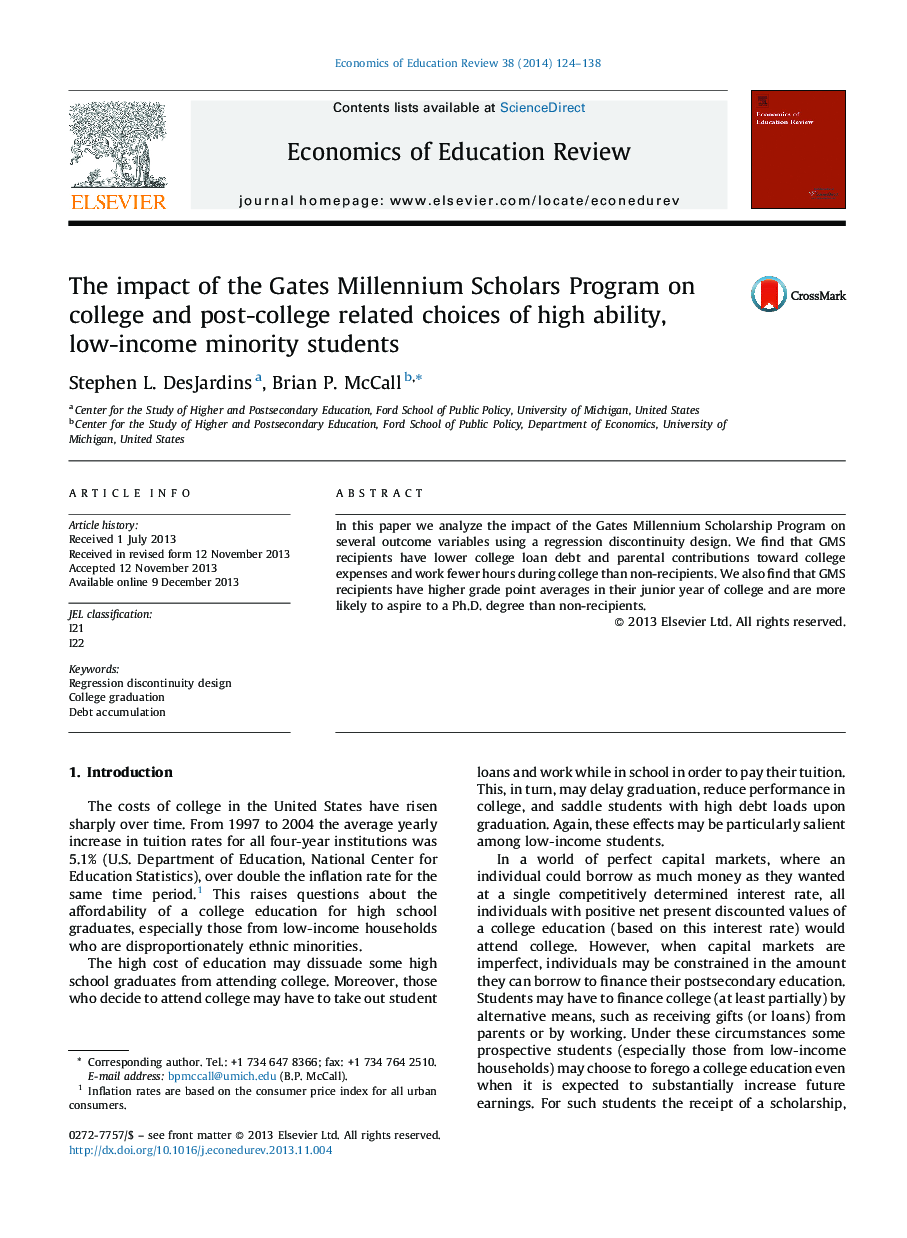| Article ID | Journal | Published Year | Pages | File Type |
|---|---|---|---|---|
| 354379 | Economics of Education Review | 2014 | 15 Pages |
•The effect of Gates Millennium Scholarship receipt on many outcomes is studied with a regression discontinuity design.•Gates Millennium Scholarship (GMS) receipt decreases weekly hours of work and the dollar amount of student loan debt.•GMS receipt decreases the amount of money parents contribute to their child's college education.•Receipt of a GMS increases the probability of aspiring to obtain a Ph.D.•There is some evidence that GMS receipt increases a student's college grade point average.
In this paper we analyze the impact of the Gates Millennium Scholarship Program on several outcome variables using a regression discontinuity design. We find that GMS recipients have lower college loan debt and parental contributions toward college expenses and work fewer hours during college than non-recipients. We also find that GMS recipients have higher grade point averages in their junior year of college and are more likely to aspire to a Ph.D. degree than non-recipients.
